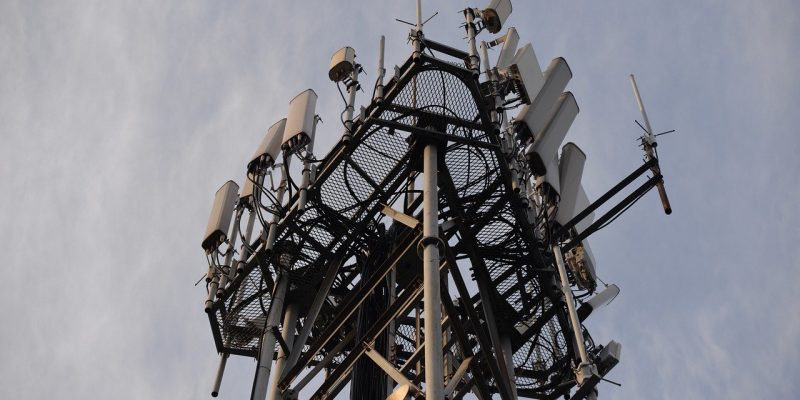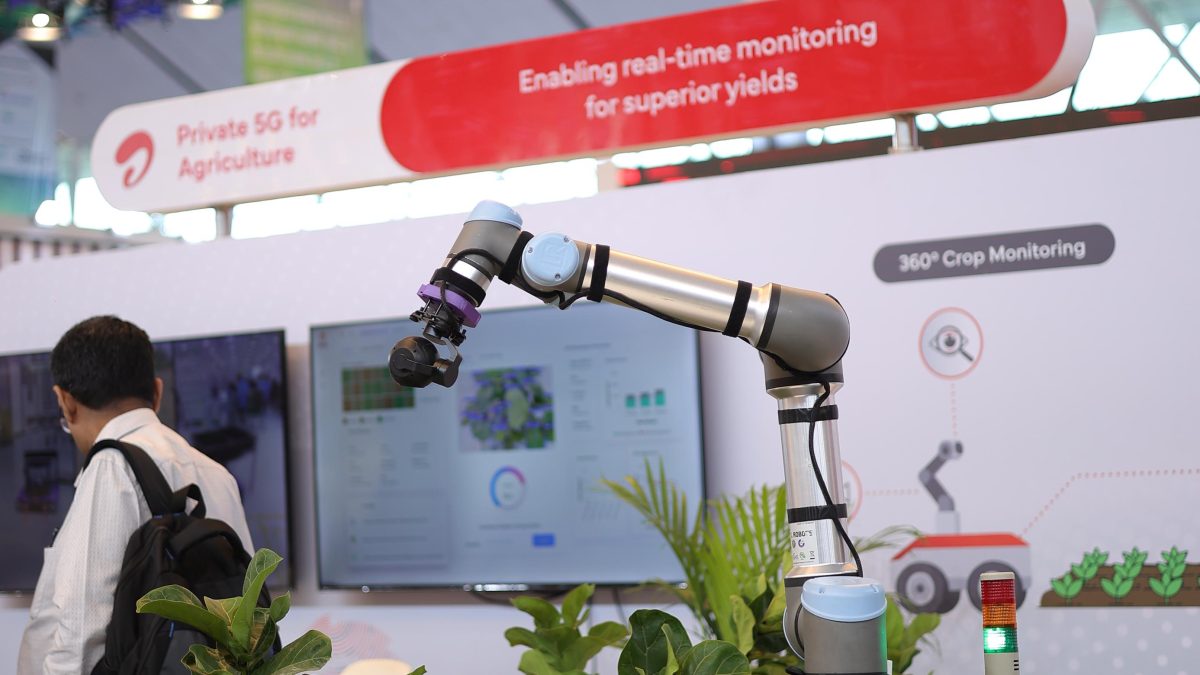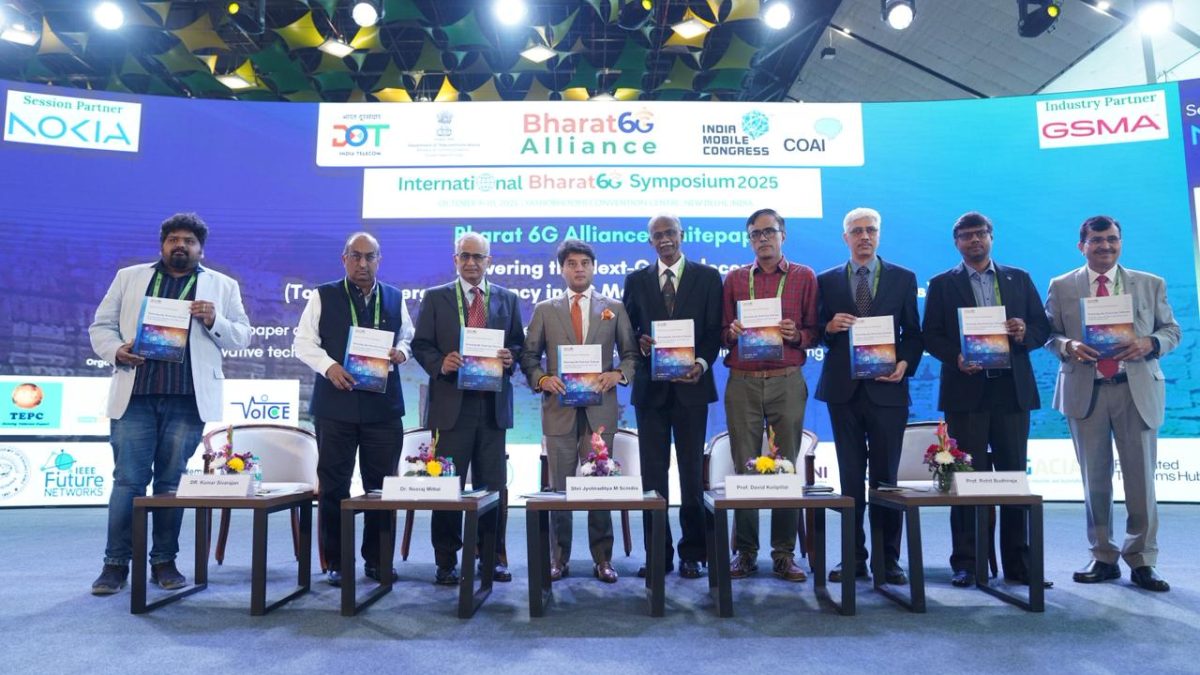Union Budget 2025-2026: COAI Calls for Further Reforms to Revitalize Industry to Step-Up Contribution for Indian Economy

Lt. Gen. Dr. S.P. Kochhar, Director General, COAI
The Cellular Operators Association of India (COAI), the apex industry body representing the digital communications ecosystem in the country, has released the telecom industry’s recommendations for the upcoming Union Budget 2025-26 to the Ministry of Finance, Government of India. COAI believes these recommendations will enhance the financial stability of the telecom sector, which is essential for achieving the Government’s goal of digital empowerment and inclusivity for all citizens.
The key highlights of the recommendations are as follows:
- Abolish Regulatory Levies
Considering the huge capital that Telecom Service Providers (TSPs) have to invest in the current scenario, especially for the deployment of 5G, COAI recommends that the Universal Service Obligation Fund (USOF) levy be abolished. Alternatively, the Government may consider the suspension of the USO contribution of 5% of AGR, till the existing USO corpus of over INR 86,000 Crore is exhausted.
COAI also recommends that the License Fee be urgently reduced from 3% to 1%, so that it just covers the administrative costs by the DoT/Government, thereby relieving the TSPs from additional financial burden.
The industry is also concerned over the present definition of Gross Revenue (GR), as it covers revenue from all telecom activities. This has created ambiguity because the term telecom activity is not defined clearly, so it may include revenue from activities believed to be incidental to telecom activity. Therefore, COAI recommends that the definition of GR be made precise, stipulating that the revenue from activities for which no license is required should not be a part of GR.
Further, we strongly believe that Large Traffic Generators (LTG) should take the responsibility of participating in the development of telecom infrastructure as they ride on the networks created by telecom companies, earn profits, but don’t pay anything for creation of the infrastructure. COAI recommends that LTGs should pay to USO Fund/Digital Bharat Nidhi Fund and thereby contribute to the Indian Digital Economy.
- Extension of carry forward of business losses from 8 years to 16 years
Owing to the intense price competition in the market, the telecom industry in India has consolidated from over 10 companies in 2017, to 3 private and 1 public sector company, which is an optimal structure and encourages healthy competition. Further to the above, cash flow and projections of some of the players in the telecom industry have also been adversely impacted post the Hon’ble Supreme Court Ruling of 2019, in the context of calculation of Adjusted Gross Revenue (AGR), whereby telecom operators are required to pay additional AGR dues basis the revised computation, over a longer period of time. Telecom sector requires periodical sizable capital investment due to technological advancements, which further adds stress to the sector. Existing provisions provided 8 years limitation to business losses, which may result in lapse of losses for those companies who have longer recovery journey.
COAI urges the Government to address the above concern by introducing a special regime for the telecom operators under Section 72 of the Income Tax Act, 1961, wherein the business losses can be carried forward and set-off till Sixteen (16) assessment years from the existing 8 years. To prevent misuse of this extended time limit, a restriction may be put on dividend distribution wherein any dividend distribution within 5 years from date of utilization or set-off of unutilized losses by the Company can attract additional dividend distribution tax of 25% (in addition to TDS), up to the amount of losses set-off by the company, on which no deduction or credit will be available to the company or shareholder.
- Clarification on Service Tax on AGR payable pursuant to Supreme Court
COAI requests the government to clarify that Service Tax is not payable on incremental License Fees (LF) and Spectrum Usage Charges (SUC) arising from the Supreme Court’s AGR ruling. The Telecom Operators, as a matter of general practice, paid Service tax on LF and SUC paid to DoT and availed full credit of the same. Levy of service tax today on the incremental AGR would be an unjust cost for the sector. Thus, a relief by way of exemption to be granted under Section 11C of STA read with Section 83 of the Finance Act. Further, clarification on the same would prevent unjust financial burdens on the sector and align with past exemptions provided under similar circumstances.
- Exemption of Service Tax on additional AGR dues
COAI emphasizes the importance of exemption of Service Tax on the “assignment of right to use natural resources” granted by the Central Government, State Government and Development Authorities.
The Supreme Court’s judgement on the methodology for calculating AGR payable to the Government has imposed an additional financial burden on telecom service providers. Prior to the introduction of GST, Service Tax was paid on AGR payments, with credit available for the same. However, post GST implementation, the additional payment of AGR due to the Supreme Court ruling, combined with Service Tax, will make it a cost for telecom companies as no credit will be admissible to them.
COAI urges the government to exempt Service Tax on the additional AGR liability arising from the Supreme Court judgment. Specifically, relief has been requested for the exemption from Service Tax payment for the period from April 2016 to June 2017, and on various services issued in November 2018. Alternatively, COAI proposes that the Government prescribe a streamlined, time-bound process for claiming a cash refund of the Service Tax paid under the Reverse Charge Mechanism (RCM), which would provide significant relief to the industry.
- Exemption of Customs Duty
Over the past 5 to 6 years, the Government of India has gradually increased the customs duty on telecom equipment to 20%, adding a significant financial burden on telecom companies and significantly impacting the rollout of 5G services in India. COAI has requested for exemption from the levy of BCD be granted on the Telecom equipment under CTH 8517, which has been increased w.e.f. October 11, 2018, which will alleviate the cost challenges associated with deploying this critical infrastructure.
COAI recommends that the customs duty be reduced to zero and then gradually increased depending on creation of ecosystem for manufacturing of telecom gear in India. Until high-quality equipment is available domestically at competitive prices, we urge the Government to reduce customs duties for 4G and 5G network products, as well as other related items, to NIL.
- Speedier disposals of appeals with CIT(A), Rectification
COAI requests that specific statutory timelines should be put in the legislation for timebound disposal of appeals by CIT(A). In Dispute Resolution Panel (DRP) there is a time limit of 9 months for disposal of appeals, failing of which it makes the income tax assessment order invalid. Timely disposal of appeals and rectifications has also been highlighted as a pressing concern, with delays adversely affecting cash flow and financial planning.
Additionally, improving the data reconciliation process in Form 26AS has been suggested by incorporating detailed transaction information, such as invoice references and deductor PANs, to streamline income reconciliation for telecom operators.
Lt. Gen. Dr. S.P. Kochhar, Director General, COAI, said, “Over the last decade, the Indian Government has implemented a number of reforms to boost the country’s digital objectives and enhance growth of the sector. As acknowledged by the Government, the telecom industry is playing an important role in this enhancement and expansion by delivering affordable access and inclusion across the verticals in a horizontal manner. Thus, lowering levy burdens and promoting investment opportunities for the TSPs are not just economic imperatives, but also strategic investments in the country’s future. We hope that the government will take these proposals into account in the future budget and assist the businesses in overcoming these long-standing issues. With 5G and the future 6G projected to accelerate India’s digital economy and bring transformation across industries, we encourage the Government to prioritize telecom infrastructure development. By doing so, the administration may establish a precedence for proactive Governance, propelling India toward a strong digital future.”
The industry is optimistic that the Finance Ministry will consider the recommendations put forth by COAI, as they are crucial to improve the overall ease of doing business and restore the financial health of this prime sector.








